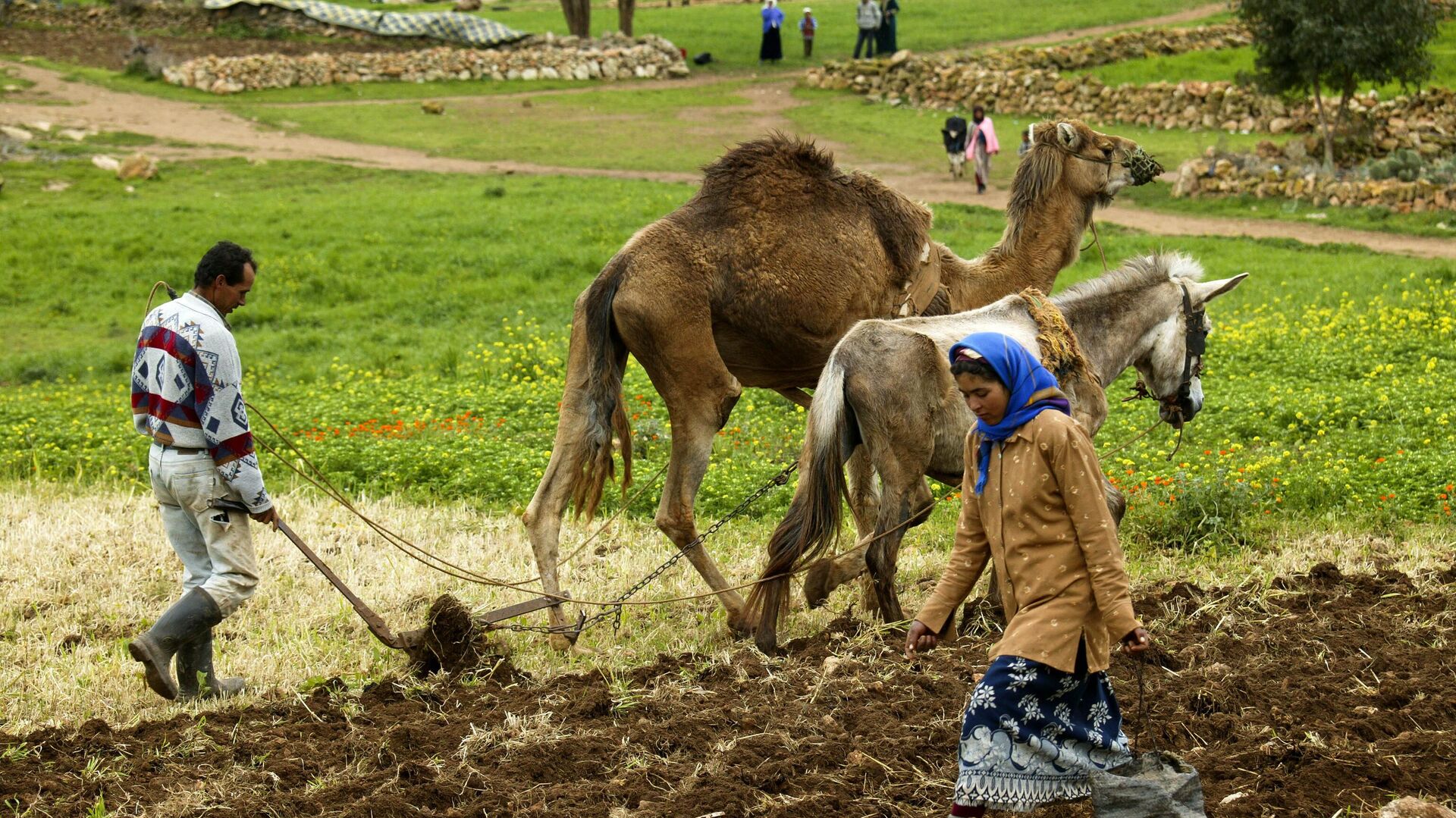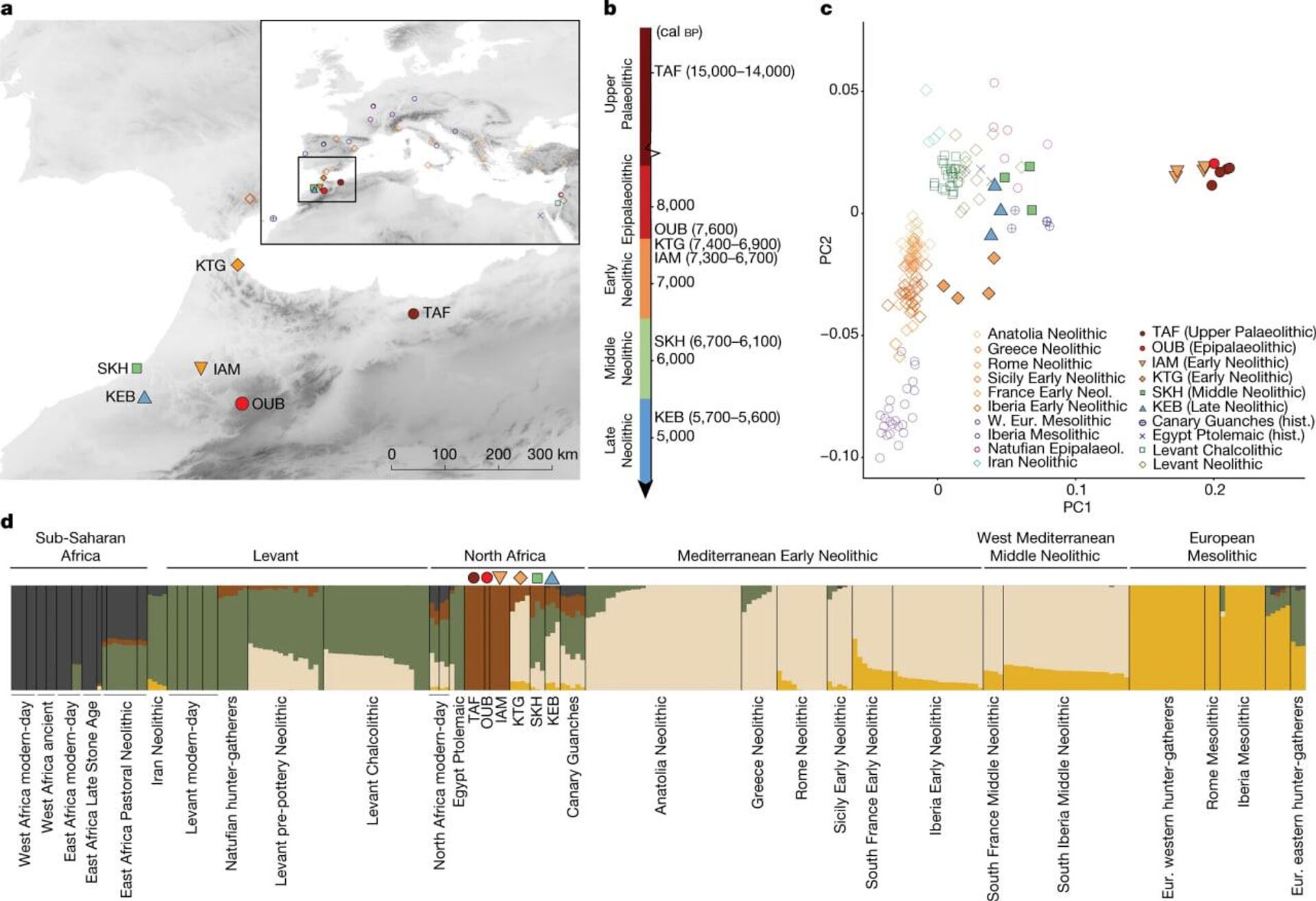New Study Explains How Farming Practices Spread to Northwest Africa
15:38 08.06.2023 (Updated: 15:52 08.06.2023)

© AP Photo / Abdeljalil Bounhar
Subscribe
About 7,400 years ago, modern humans living in northwestern Africa transitioned from hunter-gatherer lifestyles to farming-based ones, in what is known as the Neolithic or agricultural transition. The mechanism behind this shift has been unclear, but a new analysis sheds some light on the origins of farming in this part of the continent.
Migrants from Iberia and the Levant may have introduced farming practices to local people in northwest Africa, a recent study on ancient genomic data published in Nature, a British weekly scientific journal, has revealed.
The researchers sequenced and analyzed the genomic data from bones and teeth of nine individuals from three archaeological sites in Morocco, which date back to between 7,600 and 5,700 years ago, when Neolithic and pastoralist lifestyles started to spread in the region.
Previous studies suggest contradictory evidence for both the migration of farmers into the area, demographic diffusion, and the adoption of farming by local foraging groups, and cultural diffusion. The new analysis expanded previous perspectives on the arrival and spread of Neolithic lifestyles in northwest Africa, concluding that farming was brought to this part of the continent by Iberian migrants during the Early Neolithic.
According to the study, humans in northwest Africa demonstrated genetic continuity and isolation from at least 15,000 to 7,500 years ago, until the end of the Upper Paleolithic. However, this period of isolation ended with the arrival of Early Neolithic European groups, who introduced farming practices.
"Our results show that the Neolithization process in northwestern Africa was ignited by migrant Neolithic Europeans, but that local groups adopted some of these practices without mixing with the newcomers [...]. The newcomers brought new ways of life, farming practices, domestication and pottery traditions that were subsequently adopted by local populations," the scientists stated.
The study indicated that despite the relatively short geographic distance between southern Iberia and northwest Africa, "gene flow across the Mediterranean Sea was not established until the Early Neolithic."
It was noted that even though local groups adopted these farming practices, they didn't mix with the newcomers - at least this can be said based on the genomic data of individuals analyzed in the study. Therefore, the analysis underscored that "two genetically distinct groups coexisted in close proximity in the region."
While cultural features and technological expertise appear to have been transferred mostly from European migrants to local Maghrebi groups, the study proposed, genetic ancestry may have flowed from locals to the incoming farmers.

Overview of ancient northwestern African genetic composition.
The next wave of migration, which occurred during the Middle Neolithic, resulted in migrants from the Levant introducing pastoralism to locals. Subsequently, the three different ancestries - Maghrebi, European, and Levantine - lived in the region together. It was emphasized that this kind of scenario is different from those in other parts of the world, and in particular in sub-Saharan Africa, where local foragers were replaced or assimilated by farmers who had migrated to the region.
"The various waves of migration and admixture into northwestern Africa during the Neolithic possibly resulted in a heterogeneous economic and cultural landscape in that region—a mosaic of groups that included incoming farmers from Iberia, foragers adopting farming practices and eastern pastoralists admixing with local people," the analysis concluded.
The study noted that throughout prehistory northwest Africa was home to a diverse set of ethnic groups that makes the region "one of the most unique places to have been studied with the archaeogenomic toolkit."
